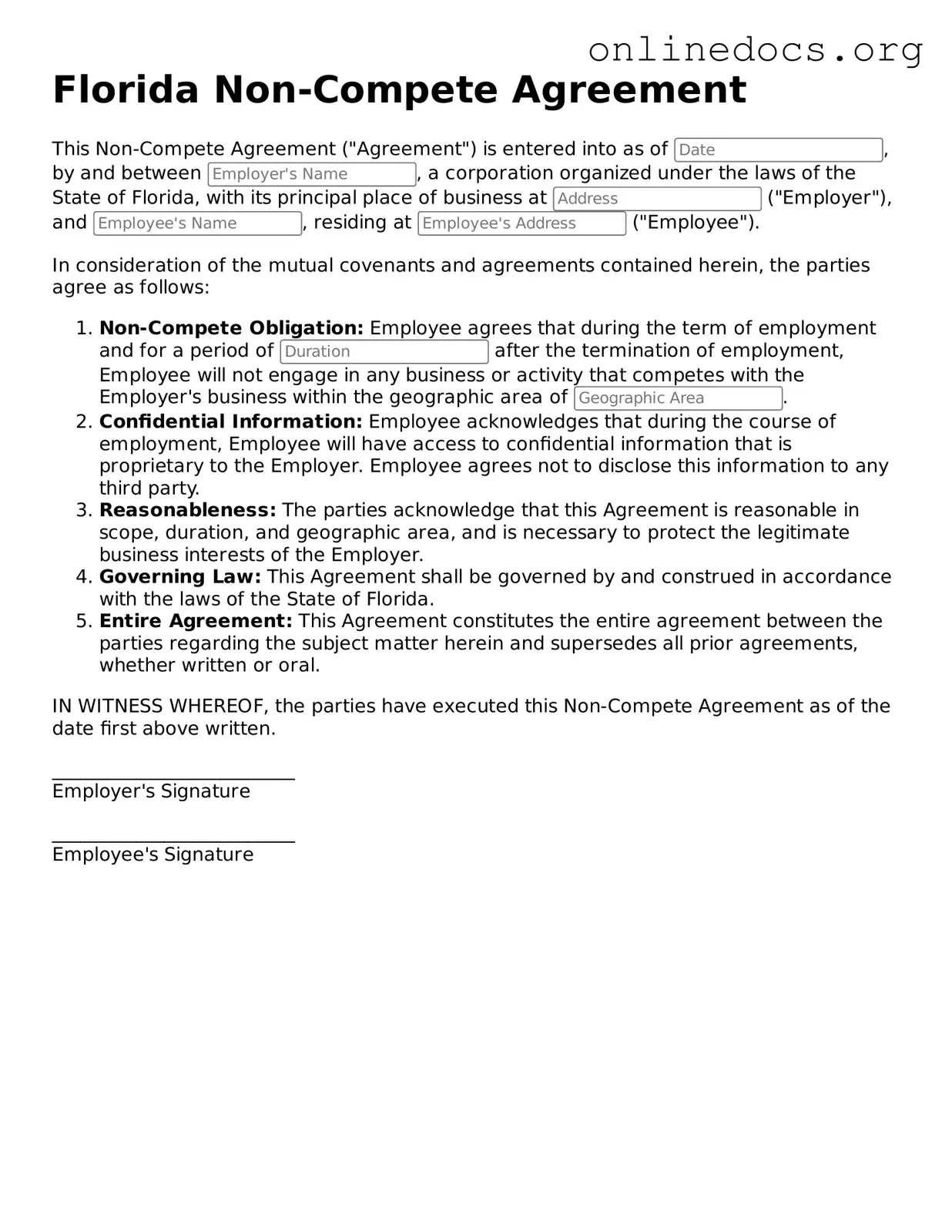When filling out the Florida Non-compete Agreement form, individuals often overlook critical details that can lead to complications down the road. One common mistake is failing to clearly define the scope of the non-compete. It’s essential to specify the type of work or services covered by the agreement. Without this clarity, the agreement may be deemed unenforceable.
Another frequent error is neglecting to include a reasonable time frame. Non-compete agreements should specify a duration during which the restrictions apply. If this period is too long, a court may strike it down. Therefore, striking a balance between protecting business interests and allowing individuals to pursue their careers is vital.
Many people also forget to consider geographic limitations. A non-compete agreement should clearly outline the geographical area where the restrictions apply. Vague terms can lead to confusion and potential legal challenges. A well-defined area helps ensure that the agreement is enforceable.
In addition, individuals sometimes fail to obtain mutual consideration. For a non-compete agreement to be valid, both parties must receive something of value. This could be a job offer, training, or access to confidential information. Without this exchange, the agreement may not hold up in court.
Another common mistake is overlooking the need for clarity in the language used. Using ambiguous or overly complex terms can create confusion. Clear, straightforward language ensures that all parties understand their rights and obligations under the agreement.
People also often neglect to review the agreement with legal counsel. Legal advice can provide insights into the enforceability of the terms. Consulting with an attorney can help individuals avoid pitfalls that might not be immediately apparent.
Additionally, some individuals forget to keep a copy of the signed agreement. Retaining a copy is crucial for future reference and can prevent misunderstandings. It’s advisable to store it in a safe place where it can be easily accessed when needed.
Many fail to consider how the agreement interacts with other employment contracts. If someone has multiple agreements, it’s essential to ensure that they do not conflict. Overlapping terms can lead to disputes and complicate legal standing.
Finally, individuals often underestimate the importance of understanding their rights. Familiarizing oneself with Florida’s laws regarding non-compete agreements can help avoid missteps. Knowledge empowers individuals to make informed decisions that protect their interests.
